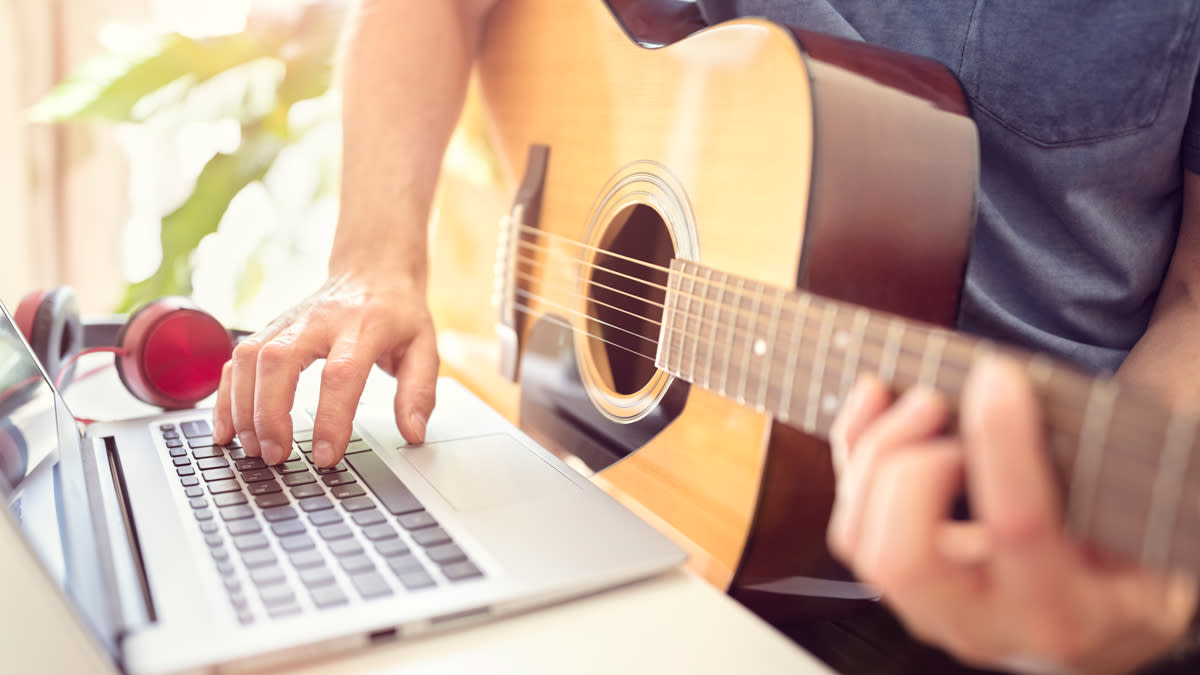“The opportunities that AI presents for guitar education are immense”: Why one of the world’s top guitar tutors is embracing AI – even if he’s out of a job

I’ve been reading a bit about AI lately and been pondering ways that it might affect my job and the role of music education generally. I don’t think it’s imminent, but at the rate that AI is growing, I can imagine that significant changes in the way we learn are certainly coming in the next decade.
Things have already changed a great deal over the last 15 years with the rise of online education. When I first started making online lessons, I was concerned about the possibility of local teachers losing students to the internet. Now it seems that the vast majority of music students use online learning, many doing so exclusively.
A lot of people still enjoy taking private lessons and building a relationship with a teacher. For many people it’s a type of therapy, the motivation to get your ‘homework’ done, and a chance to get fully absorbed in the learning process. And I hope that local in-person music lessons never die out.
But in the not-so-distant future I can imagine that AI-powered virtual tutors will be the norm. These intelligent assistants will listen to your playing, analyse your technique, and offer instant feedback and personalised practice plans. Using data from thousands of guitar performances, AI tutors will be able to pinpoint your weak spots, and help you develop your musicianship, style and general playing technique.
It scares me, but seeing how quickly AI can learn and refine data, it’s sure to be able to analyse all my lessons, cherry pick the best things about them and combine them with the best ideas from other tutors to create some incredible lessons. And they’ll be perfectly tailored to a student’s needs. It will understand any technical limitations and be able to provide the perfect blend of challenge and enjoyment for each student’s individual personality.
Searching for the perfect song to practise a particular technique or style will be a breeze with AI. An AI-driven recommendation system will analyse your playing preferences and provide a curated list of songs that align with your musical goals.
Whether you're into fingerstyle, blues, jazz, or rock, AI will introduce you to new tunes, expanding your repertoire and challenging your skills. I’m already using it for finding new songs to teach - it’s an incredible tool already and it’s only going to get better.
I’m hoping that embracing AI in guitar education isn't about replacing human instructors; it's about creating a harmonious blend of human expertise and technological advancements
Tell the OpenAI chat what songs you like and ask for suggestions - and in seconds it comes back with some great offerings. It understands how hard chords are to play and you can ask for only songs with open chords or barre chords, or fingerstyle or whatever. It always takes me ages to think up great tracks that work well for specific abilities, and this gets things done instantly.
There are also great advances (if you want to call it that) in AI generated music and some of it is pretty incredible. I doubt it will be long before AI will write songs just for you – for your ability, and your taste. I’m hoping that embracing AI in guitar education isn't about replacing human instructors; it's about creating a harmonious blend of human expertise and technological advancements.
AI will complement human instructors, offering valuable insights and personalised guidance. With AI handling routine tasks, instructors will have more time to focus on nurturing creativity, building musicality, and forming meaningful connections with their students
As with any technological advancement, integrating AI into guitar education comes with its share of challenges. Ensuring the accuracy and reliability of AI tutors, protecting user data, and addressing potential biases are paramount concerns. Additionally, fostering a healthy balance between traditional learning and AI-driven innovations will be essential to maintaining the essence of all music education.
Nonetheless, the opportunities that AI presents for guitar education are immense. Imagine a world where aspiring musicians from all corners of the globe can access top-notch guitar education at their own pace, in their preferred learning style, and location. AI will break down barriers and democratise music education, making it more inclusive and diverse.
While I think most of us will have some apprehension about this, I think we need to embrace it. It’s coming, whether we like it or not. Things will be different, but music and musicians are always evolving. I trust in the coming generations to find their creativity in this brave new world… even if I’m out of a job!

